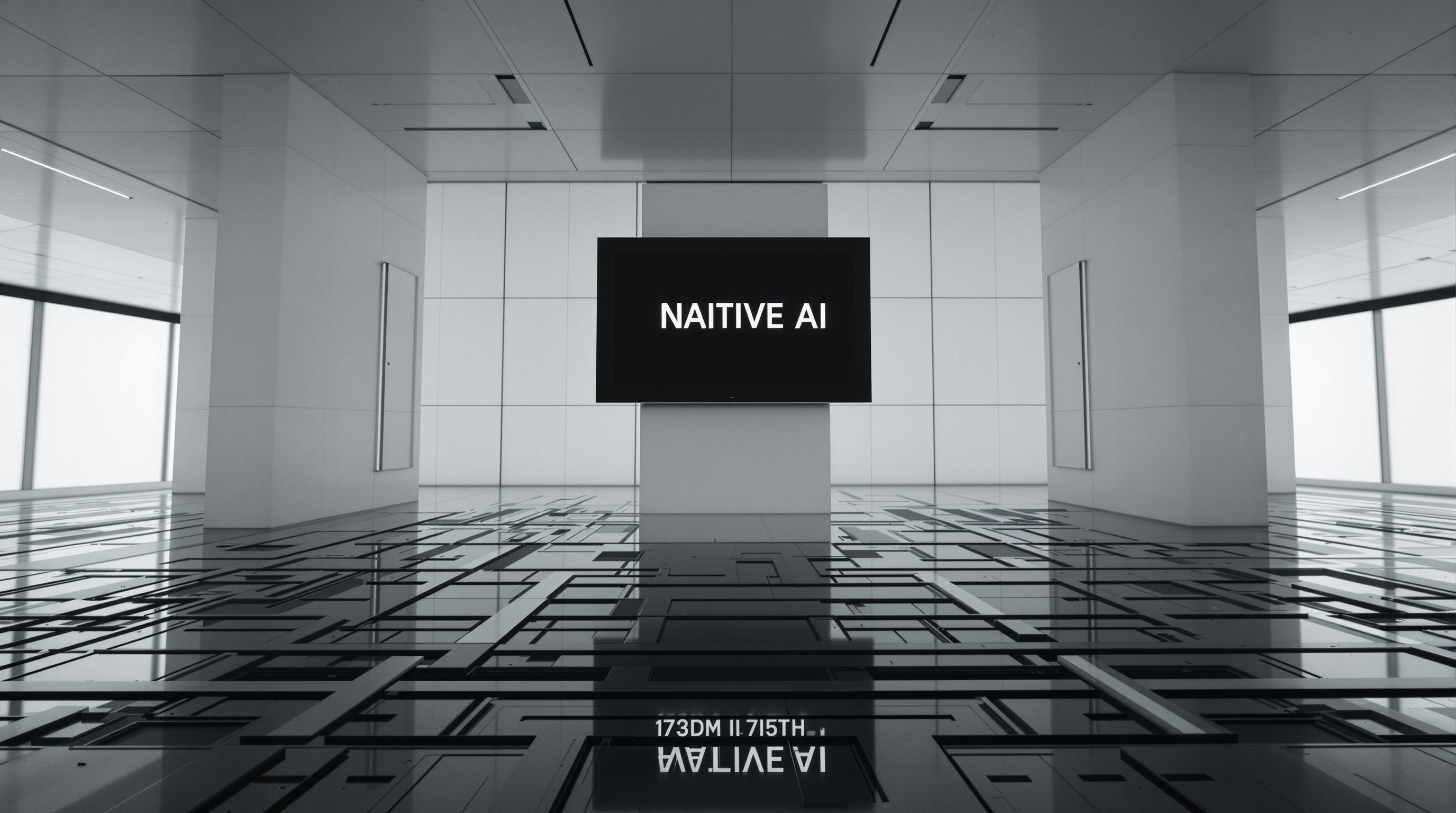Custom AI Solutions vs. Pre-Built AI Models
Explore the differences between custom AI solutions and pre-built models to find the best fit for your business needs and budget.

When choosing between Custom AI Solutions and Pre-Built AI Models, it all comes down to your business needs, budget, and timeline. Here’s a quick breakdown:
- Custom AI Solutions: Tailored to your specific processes, offering full control, deeper integration, and scalability. Best for complex, industry-specific needs but requires higher upfront investment and longer development time.
- Pre-Built AI Models: Ready-made, quick to deploy, and cost-effective for standard tasks like customer service or personalization. Ideal for smaller budgets but less flexible and scalable.
Quick Comparison
| Feature | Custom AI Solutions | Pre-Built AI Models |
|---|---|---|
| Customization | Fully tailored to your needs | Limited customization |
| Cost | High upfront investment | Lower initial costs |
| Deployment Time | Months to years | Days to weeks |
| Scalability | High, adaptable to growth | Limited scalability |
| Data Security | Full control over data | Dependent on third-party policies |
Key Takeaway: If you need precision and scalability for unique challenges, go custom. If speed and cost are your priorities, pre-built is the way to go.
Custom AI Models vs ChatGPT: A Guide to Private Large ...
What Are Custom AI Solutions?
Custom AI solutions are designed to tackle specific business challenges. Unlike generic tools, these systems are built to align closely with a company's unique processes and goals. They fit into existing workflows and deliver targeted results. Below, we'll explore both the advantages and challenges of these tailored systems.
NAITIVE AI Consulting Agency provides a great example of how custom AI works. They analyze a company's operations to identify areas where AI can make the biggest impact, then create strategies that match the business's objectives. One standout example is their Voice AI Agent, which shows how effective customization can be.
"The Voice AI Agent Solution NAITIVE implemented is from the future" - John, CEO
Benefits of Custom AI Solutions
Custom AI solutions provide several advantages for businesses with specific requirements:
Complete Control and Ownership
- Full control over data and security
- Proprietary algorithms tailored to your business needs
- Adaptability to scale or adjust as your business grows
Precise Business Integration
- Smooth integration with your current systems
- Features designed to meet your exact needs
- Functions tailored to your industry
For example, NAITIVE's AI Agent for client support handles 200 outbound calls daily. This has led to a 34% increase in customer retention and a 41% boost in conversion rates.
"The AI Agent NAITIVE designed now manages 77% of our L1-L2 client support" - Sarah Johnson, CXO
While these benefits are impressive, custom AI solutions also come with some challenges.
Limitations of Custom AI Solutions
Custom AI systems, while effective, do require careful consideration of the following drawbacks:
Resource Requirements
- Higher upfront costs compared to off-the-shelf tools
- Longer timelines for development and deployment
- A need for specialized technical skills
Ongoing Maintenance
- Regular updates to keep the system running smoothly
- Continued support for troubleshooting and improvements
- Monitoring and fine-tuning to maintain performance
To help manage these challenges, companies like NAITIVE offer managed services through their AI-as-a-Service (AIaaS) model. This includes:
- Help with implementation and system integration
- Debugging and testing assistance
- Comprehensive documentation and training
- Ongoing optimization services
"The insights gained from NAITIVE AI advisory sessions has been enlightening" - Sofie, CEO
What Are Pre-Built AI Models?
Pre-built AI models are ready-made solutions designed to handle specific tasks without requiring extensive customization. These models are typically accessible via APIs or cloud platforms, making them easy to deploy for common business needs. This approach allows companies to get started with AI quickly and efficiently.
Research shows that these models are gaining traction, with 26% of businesses using them for contact center automation and 23% for personalization.
Advantages of Pre-Built AI Models
Pre-built AI models come with several perks for businesses looking to implement AI quickly:
-
Fast Setup
- Instant access to AI capabilities
- Easy-to-use interfaces with full documentation
- Simple integration options
-
Cost Savings
- Lower upfront costs compared to building custom models
- Predictable subscription-based pricing
- Requires less in-house AI expertise
These benefits make them a popular choice for customer acquisition and improving products.
Drawbacks of Pre-Built AI Models
However, pre-built models aren't without their downsides:
-
Limited Flexibility
- Fixed features with minimal customization options
- May not fully align with specific business needs
-
Scalability Issues
- Performance can be limited for complex use cases
- Heavily reliant on the provider's infrastructure
Because of these limitations, only 19% of businesses use them to develop new AI-driven products.
Choosing between pre-built and custom AI models depends on your business goals, resources, and long-term plans.
Direct Comparison: Custom vs. Pre-Built AI
Recent data shows AI adoption rates ranging from 19% to 26% across various business functions.
Understanding the differences between custom and pre-built AI helps businesses decide which approach fits their needs. Custom AI solutions are ideal for businesses that need precise alignment with their unique processes. As NAITIVE explains: "Our systems adapt dynamically, navigating complex challenges and seizing emerging opportunities aligned with your organization's goals."
Choosing between these options often comes down to immediate requirements versus long-term objectives. Pre-built AI models offer quick deployment for common tasks like automating contact centers. On the other hand, custom solutions allow for deeper integration, making them suitable for developing entirely new AI-driven products.
Here's a quick comparison of their key features:
| Feature | Custom AI Solutions | Pre-Built AI Models |
|---|---|---|
| Customization | Fully tailored to specific needs | Limited customization |
| Cost | High upfront investment | Lower initial costs |
| Deployment Time | Months to years | Days to weeks |
| Scalability | High, adaptable to growth | Limited scalability |
| Data Security | Full control over data | Dependent on third-party policies |
NAITIVE highlights this critical difference:
"Agency isn't just a principle we embrace; it's the bedrock of our organizational culture and the driving force behind our innovative solutions."
Custom solutions take longer to develop but provide flexibility for future needs, while pre-built models are faster to implement but may restrict scalability and customization down the line.
Making the Right Choice
When deciding between custom and pre-built AI solutions, businesses need to carefully consider their specific needs, available resources, and long-term goals. According to McKinsey & Company, AI adoption rates vary across business functions, with contact center automation leading at 26%. Below, we break down when to opt for custom AI versus pre-built options.
When Custom AI Makes Sense
Custom AI is the go-to choice when your business requires solutions tailored to unique processes or complex operations. These solutions are particularly suited for industries with specialized needs.
- Healthcare Organizations: Managing sensitive patient data and using advanced diagnostic tools often requires custom solutions that meet HIPAA standards and integrate seamlessly with existing medical systems.
- Financial Institutions: Fraud detection and risk assessment benefit from proprietary algorithms and tailored data processing to maintain a competitive edge.
- Logistics Companies: Handling complex supply chains calls for custom AI capable of managing specific routing algorithms and real-time fleet operations.
"The AI Agent NAITIVE designed now manages 77% of our L1-L2 client support" - Sarah Johnson, CXO
When Pre-Built AI Fits the Bill
For businesses looking for quick and cost-effective AI implementation, pre-built solutions are often the better choice. These models work well for more generalized applications.
- Small and Medium Businesses: Companies with limited budgets and less in-house AI expertise can benefit from pre-built solutions that provide essential features without heavy upfront costs.
- Standard Business Processes: Tasks like basic customer service automation, standard document processing, sentiment analysis, and language translation are well-suited for pre-built AI.
The impact of pre-built AI is clear: 23% of businesses use it for personalization, while 22% apply it to customer acquisition. Additionally, Employee-as-a-Service AI agents can cut costs by 67% and improve efficiency by 103%.
Conclusion
Deciding between custom and pre-built AI models is crucial for aligning AI capabilities with your business goals. Pre-built models are great for quick deployment and managing costs for standard tasks, while custom models offer the precision needed to tackle more specific challenges. Both approaches have shown success in delivering measurable outcomes.
Your choice should hinge on these key factors:
- Budget: Custom AI solutions demand a higher upfront investment but can yield better returns for niche applications. Pre-built models, on the other hand, come with predictable costs and are ideal for general use.
- Deployment Timelines: If you need a solution fast, pre-built models are the way to go. If you have more time, custom models can offer tailored advantages.
- Long-Term Goals: Think about how your business will grow and whether your AI solution can scale to meet future needs.
For businesses weighing their options, working with seasoned AI consultants can make a big difference. With the right analysis and planning, you can pinpoint impactful AI opportunities and implement solutions that deliver real results.

